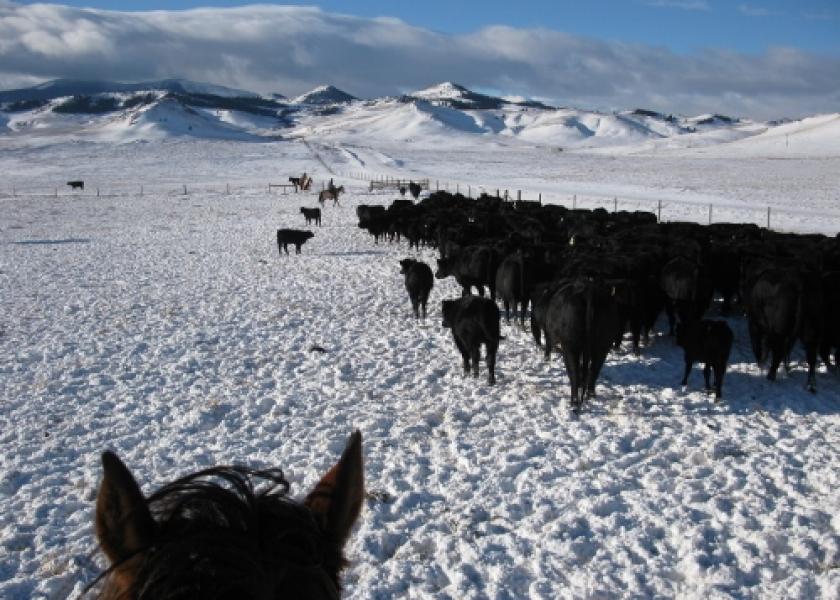Calves Need Extra Care in Winter

As snow and frigid temperatures remind us that it’s still winter, it’s a good time to remind cattle producers that calves are especially vulnerable in these conditions.
The pre-weaning period can be challenging under any circumstances, but extreme weather fluctuations put extra stress on calf immune systems. Additional care must be taken to keep calves healthy and growing during winter. The wealth of advice on this subject can be overwhelming, but there are three basic rules to keep in mind: 1) keep calves warm and dry, 2) make sure calves have enough energy, and 3) don’t forget about hydration (water and electrolytes).
Rule 1: Keep calves warm and dry
The thermoneutral zone is the temperature range in which heat loss equals heat production. For newborn calves, this zone is 50 to 78 degrees Fahrenheit. For one-month old calves, the range is 32 to 78 degrees Fahrenheit. Below these ranges, calves must use extra energy to maintain normal body temperatures.
Calves have a large surface area to body mass ratio, which causes them to lose heat more rapidly than larger animals. Additionally, calves have low body fat reserves. If they are forced to burn what little fat they have to maintain their body temperatures, growth and immune function can be compromised. Keeping calves warm and dry means minimizing heat loss. Having windbreaks or barns for cattle can provide warmth during adverse weather conditions.
Rule 2: Make sure calves have enough energy
“Calves need extra energy during cold weather. Producers may need to add an extra feeding, feed more at each feeding, or increase the fat content of each feeding to meet calves’ maintenance requirements,” said Christi Keeler, Bio-Vet Business Development Manager-Beef. “Also, products containing beneficial bacteria and yeast can help re-establish microbial activity in the digestive system following illness, stress or adverse weather, allowing calves to generate the energy needed for recovery.”
Rule 3: Don’t forget about hydration
Calves need access to clean, fresh water in every season. Water plays a role in rumen development, and is particularly necessary for maintaining hydration when milk solids are high.
The occurrence of diarrhea is more likely in winter, and this can result in progressive dehydration and electrolyte imbalance. Electrolytes are vital for restoring and maintaining proper fluid levels for scouring calves, and can provide energy to support recovery.
Keep a supply of electrolytes available to support hydration during scours outbreaks. Additional water should be provided when electrolytes are mixed with milk or milk replacer. When mixed with water, electrolytes should be fed at least 30 minutes prior to feeding milk or milk replacer.







